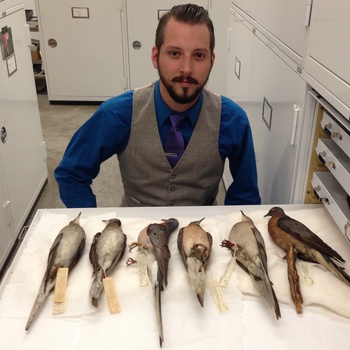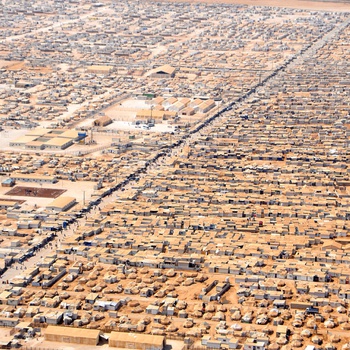Edible Insects: Where Land Conservation and Protein Meet
Brian Fisher
June 9, 02020
At the intersection of climate change, biodiversity loss, and food scarcity lies an unexpected and abundant resource: insects. Brian Fisher has spent three decades documenting biodiversity in Madagascar, a nation off East Africa that's estimated to contain 5% of the world's total plant and animal life. Across the island, harsh economic realities force local people to choose between preserving their unique ecological heritage and clearing the landscape to make way for sustenance farming. To address the twin issues of malnutrition and habitat loss, Fisher with the California Academy of Sciences founded a Malagasy-based organization that manufactures protein-packed cricket powder. The edible insects alleviate pressure on endangered habitat while supplementing local diets, providing a model that can be replicated in other food-stressed areas around the world. Fisher is an unparalleled storyteller with updates from the cutting edge of conservation science—and the future of food.
Dr. Brian Fisher is curator of entomology at the California Academy of Sciences and a world-renowned ant expert. Nicknamed the "Ant Man," Fisher has spent three decades documenting the island of Madagascar's beautiful biodiversity. Along the way, he's discovered over 1,000 new ant species. As he witnessed the biodiversity crisis unfold in Madagascar, Fisher began researching traditional insect-eating practices.
Upcoming Talks
Videos

Johanna Hoffman
Speculative Futures: Design Approaches to Foster Resilience and Co-create the Cities We Need
October 12, 02022

Creon Levit
Space Debris and The Kessler Syndrome: A Possible Future Trapped on Earth
April 26, 02022

Brittany Cox
Horological Heritage: Generating bird song, magic, and music through mechanism
August 20, 02019

Elizabeth Lonsdorf
Growing Up Ape: The Long-term Science of Studying Our Closest Living Relatives
April 30, 02019

James Holland Jones
The Science of Climate Fiction: Can Stories Lead to Social Action?
January 29, 02019

Kevin Kelly, Stewart Brand, Alexander Rose
Siberia: A Journey to the Mammoth Steppe
January 22, 02019

Caroline Winterer
The Art and Science of Deep Time:
Conceiving the Inconceivable in the 19th Century
September 4, 02018

Esther Dyson
The Short Now: What Addiction, Day Trading, and Most of Society’s Ills Have in Common
July 17, 02018

Hannu Rajaniemi
The Spirit Singularity: Science and the Afterlife at the Turn of the 20th Century
July 10, 02018

Shahzeen Attari
Facts, Feelings and Stories: How to Motivate Action on Climate Change
June 26, 02018

Renée DiResta
Disinformation Technology: How Online Propaganda Campaigns Are Influencing Us
April 10, 02018

Scott Kildall
Art Thinking + Technology: A Personal Journey of Expanding Space and Time
August 15, 02017

Miles Traer
The Geological Reveal: How the Rock Record Shows Our Relationship to the Natural World
June 27, 02017

Andrew Lakoff
How We Became “Unprepared”:
Imagining Catastrophe from the Cold War to Bird Flu
May 30, 02017

Jennifer Petersen
Why Freedom of Speech Is More Than Speech:
Expressions in Media and Code
April 18, 02017

Tara Behrend
The Psychology of Surveillance:
How Being Watched Changes Our Behavior
February 28, 02017

Ben Novak
The Next Flight of the Passenger Pigeon: Engineering Nature's Engineers
September 27, 02016










































































